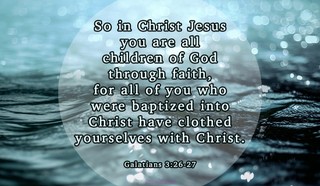
- Recent Translations
- All Translations
Kehillah in Galatia 3:20
Share
Settings
Images for Kehillah in Galatia 3:20

Kehillah in Galatia 3:20 Meaning and Commentary
Now a mediator is not a mediator of one
A mediator supposes two parties he stands between, and these at a distance from, or disagreeing with each other; where there is but one party, there can be no need of, nor any reason for, a mediator; so Christ is the Mediator between God and men, the daysman, ( Job 9:33 ) , that lays his hands upon them both; and Moses, he was the mediator between God and the Israelites:
but God is one;
not in person, for there are three persons in the Godhead, the Father, the Word, and the Holy Ghost, and these three are one, in nature and essence; so that though there are three persons, there is but one God, and who is the God both of Jews and Gentiles; who is of one mind concerning them, and has taken them into one and the same covenant, and makes use of one and the same method in the justification of them: but the true sense of the phrase here is, that whereas a mediator supposes two parties at variance, "God is one of the two"; as the Ethiopic version reads the words; he is a party offended, that stands off, and at a distance, which the law given by angels in the hand of a mediator shows; so that that is rather a sign of disagreement and alienation, and consequently that justification is not to be expected by it.
